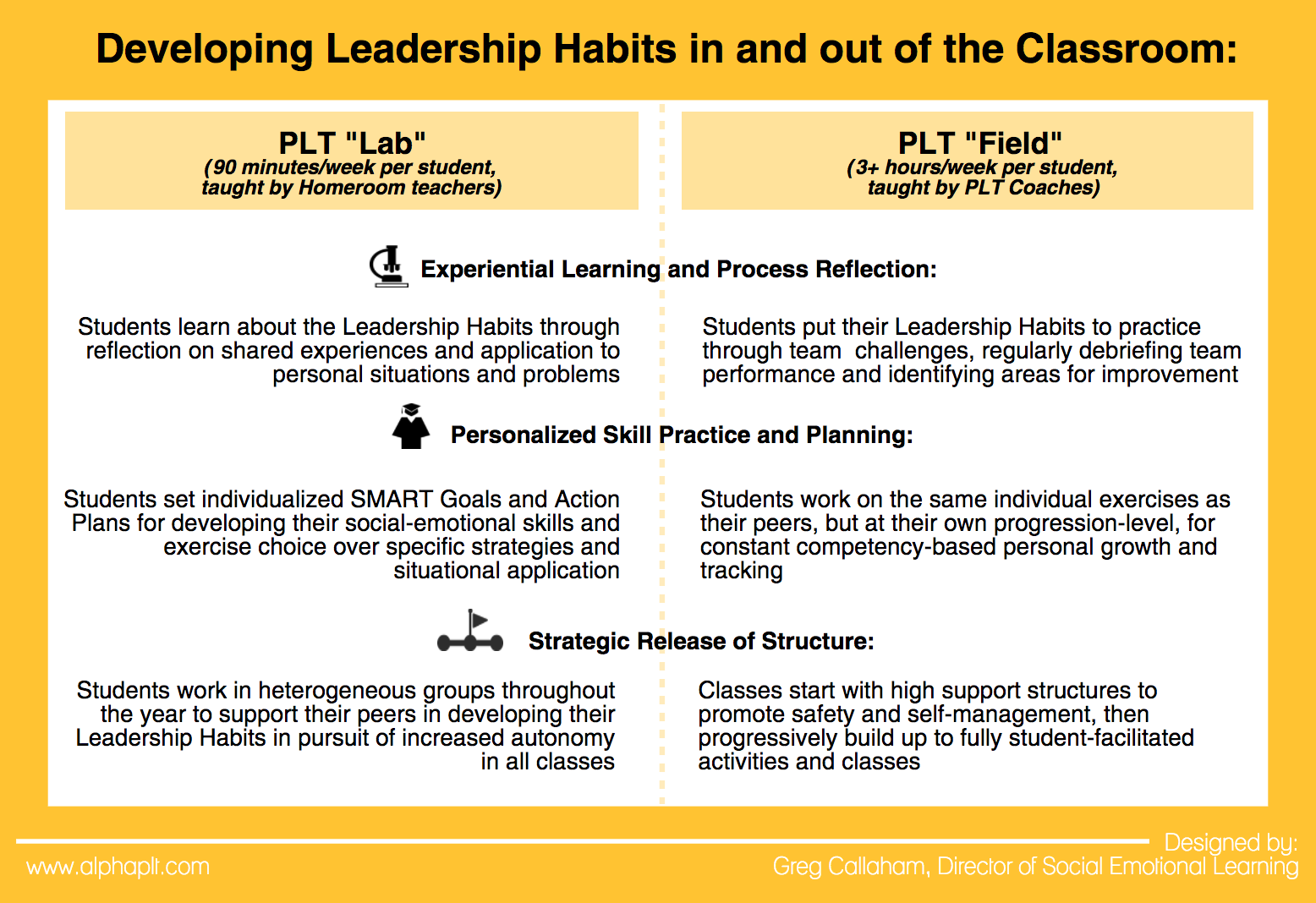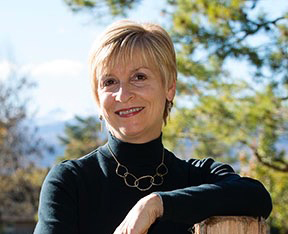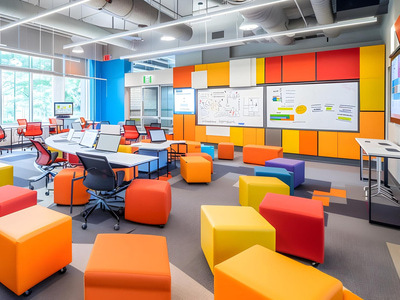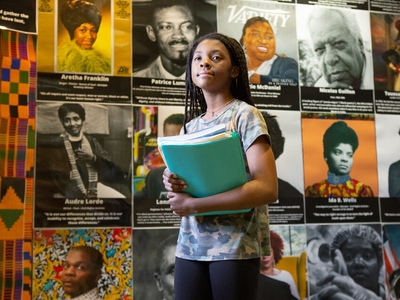New Designs for School
Fueling the Fire: Training for Leadership at Alpha Public Schools
Topics

We’ve all had the experience of truly purposeful, authentic learning and know how valuable it is. Educators are taking the best of what we know about learning, student support, effective instruction, and interpersonal skill-building to completely reimagine schools so that students experience that kind of purposeful learning all day, every day.
Practitioner's Guide to Next Gen Learning
After years of teamwork, reflection, and dedication to social-emotional learning and student leadership, Alpha Public Schools's Personalized Leadership Training has gone viral.
The work of transforming schools is an endurance sport, less like a sprint and more like a ‘round-the-world sailing race. You cannot predict what your crew will encounter once you leave the familiar waters of the harbor, and no level of preparation or state-of-the-art equipment can protect your ship from every peril. Some days you will find yourself trapped in the doldrums, frustrated at the lack of progress. But if your team is vigilant, every so often you will catch an elusive breeze: the sails will fill, the salt will spray, and the ship will bound forward. On those days, your crew may well look back at the mainland—no more than a speck on the horizon—and marvel at how far you’ve come.
“Fueling the Fire,” the Practitioner’s Guide to Next Gen Learning summer series, celebrates moments like this with stories of encouraging events from Next Generation Learning Challenges partners across the country. This week’s edition features Alpha Public Schools in California. After years of teamwork, reflection, and dedication to social-emotional learning (SEL) and student leadership, Alpha’s Personalized Leadership Training (PLT) has now gone viral, becoming a systemic component of the school’s design and a vital experience for all students.
Personalized Leadership Training: “This is not PE”
One hundred and fifty students from Blanca Alvarado Middle School in East San José, CA, pour out of the school building and onto the blacktop. Clustering into ad hoc groups of three to six, everyone begins a light warm-up. Some do jumping jacks while others stretch. Meanwhile, trainers in bright yellow pinnies organize their materials: stopwatches, clipboards, data-tracking binders, and observation sheets for recording individual fitness milestones. Based on the first few minutes, it already looks as if this class has incorporated some elements of next gen learning. Competency-based fitness progressions, data collection on individual performance, and student choice are clearly part of this program.
Promising practices, to be sure, but take a closer look: the trainers, now leading the class through a more structured round of warm-ups, are middle school students themselves. Today’s trainers are among the nearly 40 percent of Alpha students who have studied and practiced outside of school to pass the performance-based trainer test. Many of them have gone on to design their own sports programs, which are then added to the list of options their peers can choose from. Now in its third year, Alpha’s PLT program is providing all Blanca Alvarado students with explicit leadership training to prepare them for academic, professional, and personal success.
As Greg Callaham, director of social-emotional learning at Alpha Public Schools, relates, students are quick to correct anyone who refers to the “Field” component of Personalized Leadership Training as PE/physical education. Recalling a conversation between students and a local journalist, he says, “They were adamant that [PLT Field] is totally different from PE, and they felt a lot of pride about that.”
Alpha PLT: Lab and Field
One reason that students at Blanca Alvarado Middle School experience “PLT Field” as much more than a personalized fitness program is that it works in tandem with “PLT Lab,” Alpha’s advisory program. Leveraging the 90 minutes dedicated to advisory and the three-plus hours set aside for PE classes each week, Blanca Alvarado can offer both classroom instruction and “in the field” practice in college- and career-ready skills like problem-solving, giving and receiving feedback, finding the middle ground, and learning from failure.

Why Personalized Leadership Training?
Blanca Alvarado is one of four public charters in the Alpha Public Schools system. It has served its low-income community in East San José since 2012, and students have experienced considerable academic success with Alpha’s personalized, blended learning model. Even so, founder and CEO John Glover, like many education leaders, recognizes that academic preparation, though essential, is not sufficient for postsecondary success.
He cites findings like those of a recent Pell Institute Report. According to this national study, conducted in 2013, 45 percent of students from low-income families attend college at some point, but only 9 percent graduate. Many factors contribute to this high attrition rate, but the reasons students give for dropping out may come as a surprise. As indicated in this Public Agenda Report for the Bill & Melinda Gates Foundation, students do not identify lack of academic preparation or difficulty of the coursework as a major reason for leaving college. Habits of success like coping with stress and balancing school, work, and other obligations were found to be much more significant.
John and his community partners understood early on how crucial a role leadership and social-emotional skills like communication, collaborative problem-solving, and mindfulness would play for students’ lifelong success. As a result, social-emotional learning has served as a pillar of Alpha’s next gen learning model from the outset. However, the “lightbulb” for Personalized Leadership Training really went on for Greg when, as a newcomer to Alpha, he observed Jeff Quinlan’s middle school PE class of 80 students. “I saw what was happening on the blacktop. I noticed that Coach Quinlan—whether he knew it or not—was doing a lot of SEL work out there. Students who had trouble engaging with learning in the classroom were engaging on the field.”
From Lab to Field to Classroom
The inspiration for PLT Field was the effort, growth, and success students exhibited on the playground. The full PLT program then took shape as an intentional way to help students apply the same self-direction, teamwork, and other leadership skills they were practicing in PE to their academics. As John puts it, they wanted to create something that would “influence not just one subject but lead to success across the board and long term.”
Paramount to Alpha’s PLT Field program is cultivating a growth mindset that students can then apply to all learning situations. Students come to Blanca Alvarado at all levels of athleticism, so the program is organized around fitness progressions with multiple tiers of difficulty. Each student chooses from a variety of activities and selects an appropriately challenging entry point. The focus is on continuous growth toward students’ fitness goals. In this way PLT Field supports personalized pathways and pacing through the competencies. In addition, the program intentionally features novel activities like martial arts and boxing, where everyone starts off as a beginner and no one finds it easy.
By integrating—and in the process transforming—traditional homeroom and PE, PLT creates a unified platform where students “put into practice the ideas of advisory, rather than just being able to provide the right answers on a pre- or post- test.” As Greg explains, Lab teaches students the core vocabulary and metaphors they need for conceptual understanding of leadership skills and mindsets. But when students apply and demonstrate leadership in PLT Field, it is clear that they “are not just saying back to us what we want to hear—they are embodying it.”
For example, talking about the value of failure may be a useful starting place, but it’s not the same thing as confronting a PLT Field group challenge in which failure is virtually guaranteed, at least on the first attempt. In the field challenges, students have to walk the talk of learning from failure by drawing on collaborative problem-solving skills and persistence.
When students embody and own those leadership skills, they can carry them into their classrooms and ultimately their careers. In this way the PLT Lab and PLT Field partnership builds a foundation for next gen learning in the classroom.
Inspiring Outcomes
Developing Leaders: The 8th grade class of 2017 was the first cohort to experience PLT for all three years of middle school, and Greg is inspired by what he has observed and heard from educators and students. For example, many of the strongest leaders from this year’s graduating class were the students of greatest concern in grade 6, with significant behavioral issues and academic gaps. What made a difference for them, he says, were “the opportunities to take on leadership right off the bat.”
Developing Scholars: Classroom educators see the benefits of the program as well: PLT fosters the skills and habits that enable students to make the most of next gen learning practices in their academic classes. Equipped with a growth mindset and the ability to self-regulate, communicate, and collaborate, students are in a much better position to own and direct their own learning. Teachers report greater success with activities that are less structured and teacher-directed than in a traditional classroom. According to Greg, “Doubling down on applying it to academics is a necessary step in the personalization journey because it supports the kinds of academic configurations that allow for student agency and personalization.”
Developing a Leadership Culture: What’s more, the leadership training developed in PLT Field is finding new applications throughout the school. Blanca Alvarado students can now become academic trainers, offering tutoring and small-group support, peer mediators, positive behavior “check-in” partners, and mentors to younger students. PLT has become such an integral strand of the school’s DNA that participation in both components of PLT is part of all new teachers’ training, regardless of their content area.
Use, Remix, Build: Alpha PLT is Open-Source
PLT’s influence is not restricted to Alpha Public Schools, either. Other schools are building similar programs, either through formal partnerships with Alpha, like the one with Brooklyn Lab School, or via the Alpha PLT website, which houses the entire curriculum. One school in New Mexico is even using Alpha PLT as a foundation for creating student-designed educator professional learning.
Complete with lessons, resources, and how-to videos, the site is open source, and, in the words of Alpha’s CEO, “designed to be stolen.” Here’s a sample intro video from the “Deep Listening” module in the PLT Lab unit “Listening to Understand.”
Given Alpha’s willingness to share PLT with others embarking on a similar next gen learning journey, the site’s motto, "Because life is a team sport" should come as no surprise. In the same spirit of teamwork, here are some additional social-emotional learning resources to guide your thinking:
CASEL's District Resource Center, a collection of tools designed by the Collaborative for Academic, Social, and Emotional Learning, supports district-level, systemic implementation of social-emotional learning.
6 Innovations in Social-Emotional Learning provides an overview of SEL and links to tools by purpose (professional learning, behavior management, advisory/counseling), as well as to 20 programs recommended by CASEL.
Measuring Social and Emotional Learning, from the Center on Standards and Assessment Implementation, presents resources related to measuring SEL, from tools to determine “Are You Ready to Assess Social and Emotional Development?” to lists of actual instruments schools might use.
Measures That Matter Most: Tools for Measuring Success highlights next gen schools with big ideas and new measurement approaches by presenting the diverse array of tools and resources they use to measure success in both academic learning and SEL development.
Tools for Student Self-Management, from Edutopia, focuses on classroom practices to nurture self-directed and self-managing learners, including skills like time management, reflection, and goal-setting.
In an article on the ‘Rules for Engagement’ blog on Education Week, Evie Blad cites recent research regarding the long-term effects of SEL, specifically long-lasting benefits to students’ academic performance, social skills, and avoidance of negative behaviors like drug use.




